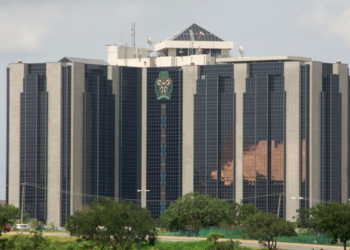The Central Bank of Nigeria (CBN) and the Nigeria Deposit Insurance Corporation (NDIC) have been empowered to set up a Banking Sector Resolution Fund to ensure the safety of depositors’ funds and operate as a bridge bank to strengthen struggling banks back to health.
The CBN is expected to inject the sum of N10 billion ($26 million) or any amount that will be determined by its board into the fund every year.
READ: Microfinance bank slams N5 million lawsuit on CBN, NDIC
According to a report from Thisday, this disclosure is contained in the Banks and Other Financial Institutions Act (BOFIA) 2020 which was just signed by President Muhammadu Buhari.
Section 74 of the BOFIA states that without prejudice to the provisions of the Asset Management Corporation of Nigeria (AMCON) Act, the Resolution Fund shall be domiciled with the central bank, and into which shall be paid all contributions and agreed levies.
READ: Nigeria @ 60: The Banking Sector and the Nigerian economy
According to the Act, the CBN Governor, Mr. Godwin Emefiele, with the approval of the board of the bank, is to determine the date of commencement of the fund.
This new arrangement is, however, separate to that of AMCON which was established to buy bad debts following the banking crisis that happened in 2009.
In the new act, each bank is expected to make annual contributions that are equivalent to 10 basis points of their total assets or a percentage that the CBN will still have to finalize.
READ: How CBN’s decision on Skye Bank saved 6,000 jobs
The new regulation states, “This will be based on the financial institutions’ total assets as at the date of their audited financial statements for the immediately preceding financial year published pursuant to this Act, and which shall be payable on the commencement date, and on or before the 30th day of April in each subsequent calendar year following the commencement date.”
The funds are expected to be used to offset operating costs of a bridge bank, to pay the costs of transferring the whole or any part of the business of a bank, specialized bank, or other financial institution pursuant to a resolution measure.
READ: AfDB bows to pressure from U.S, orders an independent probe of Akinwumi Adesina
The new act also states, “The Resolution Fund shall not be subject to tax and accordingly, all monies accruing to, payments made from, and instruments and transactions relating to the Resolution Fund shall be exempt from all forms of taxes, levies, duties, charges, or imposition howsoever described.
“Any annual levy paid by a bank, specialized bank or other financial institution in pursuance of this Act, shall be deductible for the purposes of the companies’ income tax of the paying bank, specialized bank or other financial institution under the Companies Income Tax Act.
READ: Buhari to support DisCos with funds, to roll out free 1 million meters
“A bank, specialized bank or other financial institution that is in default of payment of the levy imposed under this Act or any part thereof, shall be prohibited from paying dividends or other purpose of the Resolution Fund,” it added.
This new regulation is expected to act as a relief to some smaller or medium-sized banks who sometimes struggle during the global financial crisis like the one that happened in 2016 or the one that hit that Nigerian financial system in 2009, which led to the collapse of some financial institutions.
READ: European Central Bank plans Crypto Euro
Nairametrics had reported that President Muhammadu Buhari, some days ago assented to the Banks and Other Financial Institutions Act (BOFIA) 2020, with several new provisions to enhance the effectiveness of the country’s financial system.
It also strengthens the regulatory and supervisory framework for the financial industry and provides additional tools for managing failing financial institutions and systemic distress to preserve financial stability.


















